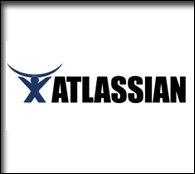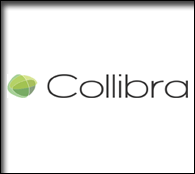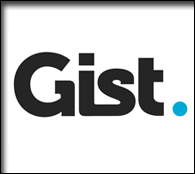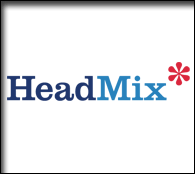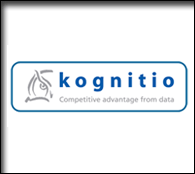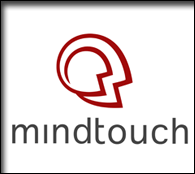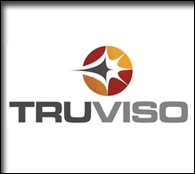Archive for July, 2008
Holy Awesomeness Batman!
by Eric Norlin on Jul.30, 2008, under conference topics
Esther Dyson sent me an abstract for the talk/discussion she’ll be giving/having at Defrag - entitled, “The Quantification of Everything.” The abstract was AWESOME and I immediately asked if I could publish it here. Unfortunately, its an outline of an article that Esther is writing for a publication that has the rights to such things.
So, while I can’t publish it (yet), I can say you are NOT going to want to miss this discussion. Holy Awesomeness Batman! (or should I be saying Dark Knight these days….?)
10 reasons to come to Defrag
by Eric Norlin on Jul.29, 2008, under conference topics
Pardon me, while I employ the time-tested, Letterman-enshrined, “top 10″ list:
10. We won’t have a conference binder. They’re a waste of paper and incredibly useless (we’re putting all of that online on a wiki).
9. You won’t have to tweet about the wifi being horrible, as the wifi is going to rock.
8. You’ll get to talk with Esther Dyson about “the quantification of everything.”
7. Brad Feld will probably bust out a cool new feld “shirt and belt” fashion ensemble.
6. You’ll eat some of the best “hotel food” you’ve ever had (really - and that’s saying something).
5. The evening reception and interaction with a whole bunch of interesting sponsors is guaranteed to light up your neural network.
4. People like Stowe Boyd, William Duggan, Paul Miller, Perry Mizota, Charlene Li, Chris Shipley, Jonathan Yarmis, Sam Lawrence, Ian Glazer, Amit Kumar, Daniela Barbosa, Marty Betz and Brian Oberkirch will be chatting through topics like unstructured data, information tomography, flow, strategic intuition, reshaping analysis, identity as a filter, user data, personal informatics, implicit values of the social graph, social search and distributed communities.
3. You’ll be witness to the first ever presentation of the Kedrosky Award (a soon to be coveted “smart person” award to be thrust upon some lucky person by Paul Kedrosky).
2. Things will actually be intimate — and you’ll get the chance to learn something valuable without the hype and busyness of an expo.
And the number 1 reason to come to Defrag:
1. Defrag is a) in Denver, b) outside of the echo chamber, and c) one of the few places where truly innovative ideas will be brought to the forefront of our discussions.
Knowledge Networking and Ambient Intimacy
by Eric Norlin on Jul.24, 2008, under conference topics, narrative/session descriptions
Perry Mizota sent over a session description for “Knowledge Networking and Ambient Intimacy”:
Leveraging the knowledge of others has always been important in maximizing one’s productivity in the business world. Now, as the Internet has become a platform for individuals to communicate their expertise on various topics, the ability to leverage the knowledge of one’s personal network in a general sense is becoming very real. However, as a person’s knowledge becomes more and more distributed — from email and documents on a computer to information on the Web — and transient (e.g., Twitter tweets), keeping track of “who knows what†is not easy. This session will be a panel discussion to discuss topics related to this issue.
Perry and I are now setting out to find the right folks for this (invites are heading out) - we’re looking for a great mix of “business” and “end user” stuff (of course, from people you don’t normally hear from).
Fun stuff!
Rich asks “where’s the beef?”
by Eric Norlin on Jul.22, 2008, under conference topics, narrative/session descriptions
Man, I miss those old Wendy’s commercials!
Rich Hoeg has a session at Defrag entitled, “Social search in the corporate environment,” and was kind enough to send in this description:
Where’s the beef? Have you ever wondered whether all these Web 2.0 tools can be effectively utilized inside the firewall? Come see how a Fortune 100 corporation uses social search, blogs, wikis and podcasts for their technical workforce. You’ll be taken upon a tour of various applications, and Rich will explain what worked … and what didn’t.
I love hearing about what *didn’t* work! Thanks, Rich.
Help me build the identity session
by Eric Norlin on Jul.22, 2008, under conference topics, narrative/session descriptions
We’ve got a session title on the board entitled, “Can identity be a filter for information overload?” Ian Glazer, an analyst with Burton Group is moderating. Here’s the thing: I want help figuring out who Ian should be talking to.
With that goal in mind, a couple of points:
1. This topic is consistently rated as one of the topics that people REALLY want to hear about.
2. The idea is simple: shouldn’t my “identity” help me to more effectively deal with information overload? Shouldn’t it help me find things I wouldn’t normally find and filter out those things that I know I won’t want. Shouldn’t our computers, software and technology get smart enough to know me? I think this goes beyond personalization — I’m not looking to explicitly set up preferences. This should be an implicit act.
3. “Identity Management” is something I know a bit about, and I know that there aren’t any established identity companies doing any of this effectively. Now, to be sure, these companies tend to focus on the enterprise not the interweb. But still, isn’t *anyone* working hard on this? I know folks are — what I want to know is who are the people I should really be talking to about this stuff. Who’s going to blow my mind with a prototype? Who’s the entrepreneur with a big vision that can change this whole field?
So, help us out, won’t ya? I’ve got Ian Glazer of Burton Group moderating the session — and we’re looking for every good idea you have. Lend a hand. ![]()
Anything but ho-hum
by Eric Norlin on Jul.21, 2008, under conference topics, narrative/session descriptions
I’ve been reading a meme lately that goes something like, “tech has gotten boring,” and all I can say is “not in my world.” Sure, maybe if you’re obsessed with the valley-echo, things may seem a little ho-hum, but I’ve been working on the Defrag agenda, so I’m just damn excited!
To that end, I thought I’d start detailing the agenda a bit with both some informal thoughts from me, and some “official” session descriptions as they happen. So, let’s get on with some of the *interesting* things happening at Defrag:
1. “Strategic Intuition and Defrag“: Professor William Duggan is opening the conference with this session. I was introduced to Professor Duggan’s recent book (Strategic Intuition) via Phil Becker. Phil’s wife, Kathi, saw Bill speak at the University of Chicago and immediately recognized the value it held for the defraggy crowd. Professor Duggan’s research focuses on the process by which strategic decisions get made. He details his work through examples as diverse as Napoleon and the Buddha. When I picked up the book, it was a mere matter of paragraphs before I was seeing that the brain processes he details are one of the “big pieces” of what we’re trying to solve with regards to information overload.
We all know that too many tech conferences simply replay the same speakers all of the time. I’m incredibly excited to watch Bill’s talk frame things for us in a way that sets us all off on a different path, and immediately removes us from the “echo chamber.”
2. “Is the flow just too much? Lifestreaming at the edge”: Anyone who knows me knows that I’m impressed by Stowe Boyd’s brain. One of the big pushes around information overload is always how to “limit” things. Declaring “email bankruptcy” is a pretty common happening for folks that come back from vacation (or travel) to find 1000s of email messages, feeds, bits of news and tweets that haven’t been read. Hell, I’ve done it.
What fascinates me about Stowe’s thoughts are his immediate reactions against this surrender. He would rather take us the other way - claiming that perhaps our metaphors of work and living inside of this “flow” aren’t quite caught up to where the technology is trying to lead us. Could it be that we’re all just horribly behind the curve (or flow)? I’m not sure, but I know that Stowe will make us think, and I’m betting that he’ll start to open our eyes to how it is that re-imagining our metaphors around interaction can help to reshape the technologies and tools we’re dealing with.
3. “Fixing Foundational Information Channels — Email, Calendars, RSS, etc”: Following along the same lines as Stowe’s thinking, this session starts with the premise that something is broken in our foundations. Email imagines every message as a letter (a discrete object vs. a thread or networked send). Calendars are silo’d islands of non-interoperability that hearken back to days of paper and the rolodex. And RSS, new as it is, is still delivering us “object-oriented” feeds, and not contextually-driven usefulness. In all three cases, I admit to being completely lost. So, I went out and recruited some smart folks that I know you don’t normally hear from: Ilya from AideRSS, Yori from Timebridge, Deva from ClearContext, and Pete from Mailana. It will all be moderated by the always-on-the-ball, Jeff Nolan — and I can’t wait. Do you want to help us start re-framing the problems here? I hope so.
4. “Observing The Invisible Through Aggregating Information Tomography”: Yep, it is a mouthful. In fact, when Marty Betz (of FirstRain) came to me early on and said he wanted to present this topic, my only response was, “that’s great, but what the hell is it?” Marty went on to explain that much of what he works on is how to take “cross-sections” of information, and how using those cross-sections will unveil things in data that we can’t see by simply digesting one discrete bit (like, “so and so is now CTO of company X”). Once I got it, I immediately said “yes.” Come and find out how looking at information and data sets sideways can reveal things you’ve never seen before.
Now, I ask you: does any of that sound boring? Yea, I don’t think so either.
Come join us (and do so now to lock in the early bird rate).
A fun port in the storm
by Eric Norlin on Jul.18, 2008, under general
I’m trying to slow things down a bit on a Friday (it has been a crazy busy week) - not that I’m succeeding, but I’m trying.
This piece by Om Malik caught my eye this morning. Note the “you must read me” title: “Why Silicon Valley Should Be Worried.”
The gist of the piece is simple: ValueClick, Platform-A, Microsoft and now Google have pointed to weaker advertising revenues, and, as a result, “the valley” is about to enter a real rough patch and should be worried. Now, I don’t necessarily disagree with Om, but I’d frame things in a bigger perspective.
Much (most?) of the “web 2.0″ wave has been riding the idea that you give stuff (content, services, etc) away for free and make your money through advertising. Readers of this blog know that I’ve been calling for a shift back to the enterprise side of things since last year at this time. Was I early or just taking a longer time-frame perspective? I leave that to you to decide.
Either way, my sense has been and still is that a whole raft of startups (and bigger companies) will get hurt as ad revenues suffer in a weaker economy. Specifically, startups that have based their business model on ad revenue and are now facing the end of the funding line are in for some trouble. And that’s a natural thing. The excess of the web 2.0 wave has to get replaced by real business models generating real revenue (and striving towards or achieving real profitability).
None of that is to say that enterprises aren’t cutting back on spending. They are. But no one (at least no one I’ve read) has taken IT spending towards a flat or negative trend. Enterprise IT spending is still up year over year (and will continue to be). Sure, that spending will get pickier — that’s the name of the game at this point.
At the end of the day, the “enterprise” will break into two camps: one camp that’s focused purely on cost-cutting and efficiency measures, and one camp that’s still sorting through big picture, strategic problems. You can argue that defraggy topics cross both sides, but I do think that ultimately Defrag is about “big problems.” In that vein, I’m happy to report that we’ve seen absolutely no signs of slowing on any front. Registrations are humming, sponsorships are selling (out), buzz is building, and the agenda is getting to the point where I’m starting to get very excited.
Feel free to escape the doom and gloom of the valley (and elsewhere). Defrag’s substance, participants and abundance offers one helluva fun port in the storm. ![]()
A Smarter Web
by Eric Norlin on Jul.15, 2008, under general
Chris Shipley (of DEMO fame, and advisor to Defrag) has written a great post about the trend(s) that she’s seeing as she prepares for DEMO.
The Web 2.0 Cycle Has Come to a Close.For much of the last three years, technology industry pundits have hyped Web 2.0 as the Big Thing that fundamentally changes the business of the Web. We think it’s pretty clear now that Web 2.0 has been more of a hype cycle than a business cycle.
Unlike the Dot Com cycle before it, the Web 2.0 phase hasn’t created tremendous business value for entrepreneurs or their investors. But the social Web - the true definition, we think, of this most recent wave - has sparked tremendous innovation. It has given us the “operating systems” for social networks, the culture of conversation and engagement, the discipline of rapid and disruptive development, and the technology basis on which to build reliable, scalable Web applications. In short, it’s delivered a platform on which to build the next phase of the Web.
I have to say that I agree.
Chris goes on to talk about building a “smarter web” — one where information finds you, and yet you don’t lose “serendipitous discovery.” This (obviously) is a topic near and dear to our defraggy hearts. If we’re really going to deal with the tremendous amounts of information at our disposal, and do so in a way that seeks to leverage this abundance (versus limiting it), then technologies and tools are going to have to get us there. One note here: There’s so much talk of scarcity these days — isn’t it nice to have a subject that is completely about abundance?
Go read the whole piece, as Chris really puts it all together. We’ve entered the next “building phase” of the internet; we always do in recessions. Forget the echo chamber. Walk away from the hype of yesterday. Join us as we start building what’s next. ![]()
Pete on attending Defrag
by Eric Norlin on Jul.10, 2008, under Uncategorized
Pete Warden has written the kind of blog post that puts a big smile on my face: why you should attend Defrag. I’ll let Pete speak for himself, but check it out.
